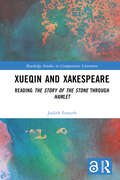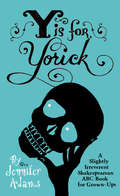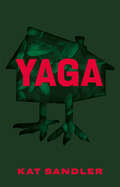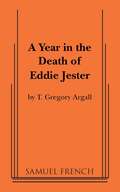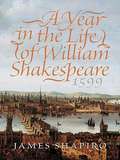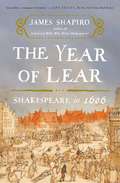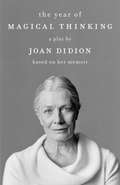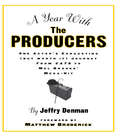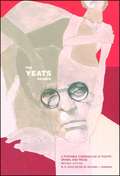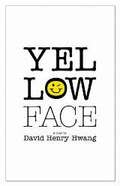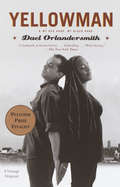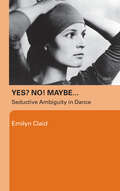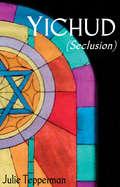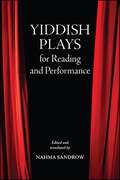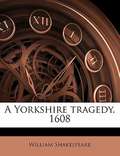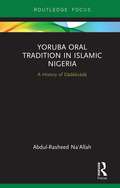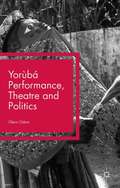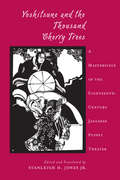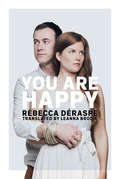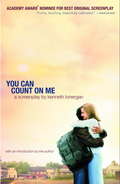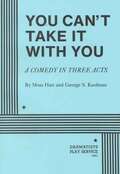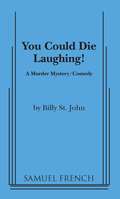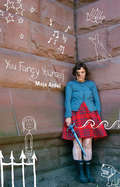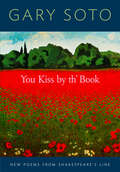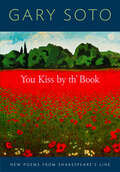- Table View
- List View
Xueqin and Xakespeare: Reading The Story of the Stone through Hamlet (Routledge Studies in Comparative Literature)
by Judith ForsythThis monograph offers a detailed consideration of the five-volume novel written by Cao Xueqin and translated into English as The Story of the Stone, when read through William Shakespeare’s drama Hamlet, Prince of Denmark, A Tragedy in Five Acts. The book builds on the superlative David Hawkes/John Minford English language translation, which is inspired by resonances between the English Shakespearean literary heritage and the dynasties-old Chinese literary tradition inherited by Cao Xueqin. The Introduction sets out the potential for the significant cultural exchange between these two great literary works, each an inexhaustible inspiration of artistic and scholarly re-interpretation. Two chapters bring into consideration two universal literary themes: patriarchy – filial obedience and family honour, and tragic romantic love. These chapters are structured so that a key episode in Hamlet provides the initial perspective, which is then carried through to an episode in The Story of the Stone which offers points of complementarity: in-depth interpretation draws on inter-textual, historical and contemporary contexts referenced from the immense body of scholarly research which has accumulated around these iconic works. The third chapter proposes a new reading of the problematic ‘shrew’ character in the novel, Wang Xi-feng, through tracing the similarities of the structure of the narration of her life and death with a Shakespearean five-act tragedy.
Y is for Yorick: A Slightly Irreverent Shakespearean Abc Book For Grown-ups
by Jennifer AdamsThis delightfully illustrated ABC book for grown-ups offers a fresh and irreverent take on Shakespeare&’s most memorable characters. The plays of William Shakespeare contain some of the most renowned characters and stories in all of literature. The perfect gift for any fan of The Bard, Y is for Yorick takes playful jabs at the unforgettable plots and people we all know and love. From Ariel (of The Tempest) to Elizabeth (of Richard III), each entry combines amusing illustrations with tongue-in-cheek captions about each character.
Yaga
by Kat SandlerYaga is a mash-up of police procedural, noir thriller, comedy, and lore.Kat wanted to point out how society speaks of and labels women, especially older women.
A Year in the Death of Eddie Jester
by T. Gregory ArgallStand up comic Eddie Jester has been mugged and is comatose. His disembodied spirit offers up jokes and commentary on the events transpiring in his hospital room, including the simultaneous visit to his bedside of his wife and his girlfriend and some nonmedical doctor/nurse activities. Eddie's semi posthumous examination of life, love and human relationships provides funny and poignant insights while the duplicity of his agent, revelations about his father and the births of two children demonstrate to Eddie that sometimes even your own life carries on without you. FEE: $75 per performance.
A Year in the Life of William Shakespeare
by James S. ShapiroThose with a keen interest in Shakespeare will enjoy insight into the man, his work and his times. Shapiro knows his readership will be a motivated one and is counting on the subject material to drive them to carry on. What makes the book an engaging read is the political context it provides. We begin to understand why he wrote some of his plays and certain characters, and what pressures he would've dealt with keeping his craft "cutting-edge", but popular to the masses, as well as staying in the Queen's favor.
The Year of Lear: Shakespeare in 1606
by James ShapiroPreeminent Shakespeare scholar James Shapiro shows how the tumultuous events in England in 1606 affected Shakespeare and shaped the three great tragedies he wrote that year--King Lear, Macbeth, and Antony and Cleopatra.In the years leading up to 1606, since the death of Queen Elizabeth and the arrival in England of her successor, King James of Scotland, Shakespeare's great productivity had ebbed, and it may have seemed to some that his prolific genius was a thing of the past. But that year, at age forty-two, he found his footing again, finishing a play he had begun the previous autumn--King Lear--then writing two other great tragedies, Macbeth and Antony and Cleopatra. It was a memorable year in England as well--and a grim one, in the aftermath of a terrorist plot conceived by a small group of Catholic gentry that had been uncovered at the last hour. The foiled Gunpowder Plot would have blown up the king and royal family along with the nation's political and religious leadership. The aborted plot renewed anti-Catholic sentiment and laid bare divisions in the kingdom. It was against this background that Shakespeare finished Lear, a play about a divided kingdom, then wrote a tragedy that turned on the murder of a Scottish king, Macbeth. He ended this astonishing year with a third masterpiece no less steeped in current events and concerns: Antony and Cleopatra. The Year of Lear sheds light on these three great tragedies by placing them in the context of their times, while also allowing us greater insight into how Shakespeare was personally touched by such events as a terrible outbreak of plague and growing religious divisions. For anyone interested in Shakespeare, this is an indispensable book.
The Year of Magical Thinking: The Play
by Joan Didion"This happened on December 30, 2003. That may seem a while ago but it won't when it happens to you ..." In this dramatic adaptation of her award-winning, bestselling memoir (which Michiko Kakutani in The New York Times called "an indelible portrait of loss and grief ... a haunting portrait of a four-decade-long marriage".) Joan Didion transforms the story of the sudden and unexpected loss of her husband and their only daughter into a stunning and powerful one-woman play. The first theatrical production of The Year of Magical Thinking opened at the Booth Theatre on March 29, 2007, starring Vanessa Redgrave and directed by David Hare.
A Year with the Producers: One Actor's Exhausting (But Worth It) Journey from Cats to Mel Brooks' Mega-Hit (A\theatre Arts Book Ser.)
by Jeffry DenmanA behind-the-scenes story with more than a touch of theatrical magic about it, A Year with The Producers is a book for actors and theater fans everywhere.
The Yeats Reader, Revised Edition: A Portable Compendium of Poetry, Drama, and Prose
by Richard J. Finneran William Butler YeatsThroughout his long life, William Butler Yeats -- Irish writer and premier lyric poet in English in this century -- produced important works in every literary genre, works of astonishing range, energy, erudition, beauty, and skill. His early poetry is memorable and moving. His poems and plays of middle age address the human condition with language that has entered our vocabulary for cataclysmic personal and world events. The writings of his final years offer wisdom, courage, humor, and sheer technical virtuosity. T. S. Eliot pronounced Yeats "the greatest poet of our time -- certainly the greatest in this language, and so far as I am able to judge, in any language" and "one of the few whose history is the history of their own time, who are a part of the consciousness of an age which cannot be understood without them."The Yeats Reader is the most comprehensive single volume to display the full range of Yeats's talents. It presents more than one hundred and fifty of his best-known poems -- more than any other compendium -- plus eight plays, a sampling of his prose tales, and excerpts from his published autobiographical and critical writings. In addition, an appendix offers six early texts of poems that Yeats later revised. Also included are selections from the memoirs left unpublished at his death and complete introductions written for a projected collection that never came to fruition. These are supplemented by unobtrusive annotation and a chronology of the life.Yeats was a protean writer and thinker, and few writers so thoroughly reward a reader's efforts to essay the whole of their canon. This volume is an excellent place to begin that enterprise, to renew an old acquaintance with one of world literature's great voices, or to continue a lifelong interest in the phenomenon of literary genius.
Yellow Face
by David Henry Hwang Frank Rich"A pungent play of ideas with a big heart. Yellow Face brings to the national discussion about race a sense of humor a mile wide, an even-handed treatment and a hopeful, healing vision of a world that could be."--Variety"Charming, touching, and cunningly organized as well as funny, [with] an Ibsenite reach and stature far beyond any issues of Hwang's self-image."--The Village Voice"It's about our country, about public image, about face," says David Henry Hwang about his latest work, a mock documentary that puts Hwang himself center stage as it explores both Asian identity as well as race in America. The play begins with the 1990s controversy over color-blind casting for Miss Saigon, before it spins into a comic fantasy, in which the character DHH pens a play in protest and then unwittingly casts a white actor as the Asian lead. Yellow Face also explores the real-life investigation of Hwang's father, the first Asian American to own a federally chartered bank, and the espionage charges against physicist Wen Ho Lee. Adroitly combining the light touch of comedy with weighty political and emotional issues, "Hwang's lively and provocative cultural self-portrait lets nobody off the hook" (The New York Times).David Henry Hwang is the author of the Tony Award-winning M. Butterfly, a finalist for the 1988 Pulitzer Prize. Other plays include Golden Child, FOB, The Dance and the Railroad, and Family Devotions; his opera libretti include three works for composer Philip Glass. He was appointed by President Clinton to the President's Committee on the Arts and Humanities.
Yellowman
by Dael OrlandersmithThese two raucously acclaimed new plays by Dael Orlandersmith, whom The New York Times has called "an otherworldly messenger, perhaps the sorcerer's apprentice, or a heaven-sent angel with the devil in her," confirm her reputation as one of the truly unique voices in contemporary American drama.In Yellowman, a finalist for the 2002 Pulitzer Prize in Drama, Alma and Eugene have known each other since they were young children. As their friendship blossoms into love, Alma struggles to free herself from her mother's poverty and alcoholism, while Eugene must contend with the legacy of being "yellow"--lighter-skinned than his brutal and unforgiving father. In My Red Hand, My Black Hand, a young woman explores her heritage as the child of a blues-loving Native American man and a black sharecropper's daughter from Virginia. Alternately joyous and harrowing, both plays are powerful examinations of the racial tensions that fracture communities and individual lives.From the Trade Paperback edition.
Yes? No! Maybe…: Seductive Ambiguity in Dance
by Emilyn ClaidCovering fifty years of British dance, from Margot Fonteyn to innovative contemporary practitioners such as Wendy Houstoun and Nigel Charnock, Yes? No! Maybe is an innovative approach to performing and watching dance. Emilyn Claid brings her life experience and interweaves it with academic theory and historical narrative to create a dynamic approach to dance writing. Using the 1970s revolution of new dance as a hinge, Claid looks back to ballet and forward to British independent dance which is new dance’s legacy. She explores the shifts in performer-spectator relationships, and investigates questions of subjectivity, absence and presence, identity, gender, race and desire using psychoanalytical, feminist, postmodern, post-structuralist and queer theoretical perspectives. Artists and practitioners, professional performers, teachers, choreographers and theatre-goers will all find this book an informative and insightful read.
YICHUD (Seclusion)
by Julie TeppermanThe Yichud Room is the place where the bride and groom go to be alone immediately following the wedding ceremony. In the case of Rachel and Chaim, who have only had a handful of chaperoned dates, this is the first time they have ever been alone together.In another part of the synagogue, tensions rise between the groom's older brothers, Ephraim and Menachem, rival Torah scholars who haven't seen each other in four years. Meanwhile, the bride's parents, Mordechai and Malka, are secretly planning to divorce after the wedding. YICHUD (Seclusion) directly confronts the tensions that exist in the Orthodox Jewish world between tradition and modernity, powerfully dramatizing issues of love, marriage, respect, sex, honour, and duty.
Yiddish Plays for Reading and Performance (SUNY series in Contemporary Jewish Literature and Culture)
by Nahma SandrowYiddish theater was first and foremost fine theater, with varied repertory and actors of high quality. The three stage-ready plays and nine individual scenes collected here, most of them well-known in Yiddish repertory but never before translated, offer an introduction to the full range of Yiddish theater. Fresh, lively, and accurate, these translations have been prepared for reading or performance by award-winning playwright and scholar Nahma Sandrow. They come with useful stage directions, notes, and playing histories, as well as comments by directors who have worked in both English and Yiddish theater. In the three full-length plays, a matriarch battles for control of her business and her family (Mirele Efros; or, The Jewish Queen Lear); two desperate women struggle over a man, who himself is struggling to change his life (Yankl the Blacksmith); and, in a charming fantasy village, a poetic village fiddler gambles on romance (Yoshke the Musician). The nine scenes from selected other plays are shaped to stand alone and range in genre from symbolist to naturalist, operetta to vaudeville, domestic to romantic to avant-garde. In her preface, Sandrow contextualizes the plays in modern Western theater history from the nineteenth century to the present. Yiddish Plays for Reading and Performance is not nostalgia—just a collection of good plays that also serves as an informed introduction to Yiddish theater at its liveliest.
A Yorkshire Tragedy
by ShakespeareThe plot of the play is based on the biographical account of Walter Calverley of Calverley Hall, Yorkshire, who was executed on 5 August 1605 for murdering two of his children and stabbing his wife. <P> <P> The crimes were a well-known scandal of the day; a pamphlet on the case was issued in June 1605, with a ballad following in July. The chronicler John Stow reported the case in his Annals.[1][2] The murders were also dramatised in a play titled The Miseries of Enforced Marriage (1607), by George Wilkins. Scholars have disagreed on the relationship between Wilkins's play and A Yorkshire Tragedy; some of have seen one play as a source for the other, or even the work of the same author, while others regard the two dramas as essentially separate works.[3]
Yoruba Oral Tradition in Islamic Nigeria: A History of Dàdàkúàdá (Global Africa)
by Abdul-Rasheed Na'AllahThis book traces Dàdàkúàdá’s history and artistic vision and discusses its vibrancy as the most popular traditional Yoruba oral art form in Islamic Africa. Foregrounding the role of Dàdàkúàdá in Ilorin, and of Ilorin in Dàdàkúàdá the book covers the history, cultural identity, performance techniques, language, social life and relationship with Islam of the oral genre. The author examines Dàdàkúàdá’s relationship with Islam and discusses how the Dàdàkúàdá singers, through their songs and performances, are able to accommodate Islam in ways that have ensured their continued survival as a traditional African genre in a predominantly Muslim community. This book will be of interest to scholars of traditional African culture, African art history, performance studies and Islam in Africa.
Yorùbá Performance, Theatre and Politics
by Glenn OdomThis book explains the connections between traditional performance (e.g. masked dances, prophecy, praise recitations), contemporary theatre (Wole Soyinka, Ola Rotimi, Tess Onwueme, Femi Osofisan, and Stella Oyedepo) , and the political sphere in the context of the Yorùbá people in Nigeria.
Yoshitsune and the Thousand Cherry Trees: A Masterpiece of the Eighteenth-Century Japanese Puppet Theater (Translations from the Asian Classics)
by Jones Stanleigh H. Jr.A masterpiece of eighteenth-century Japanese puppet theater, Yoshitsune and the Thousand Cherry Trees is an action-packed play set in the aftermath of the twelfth-century Genji–Heike wars. It follows the adventures of the military commander, Yoshitsune, as he tries to avoid capture by his jealous older brother and loyal henchmen. The drama, written by a trio of playwrights, popularizes Japan's martial past for urban Edo audiences. It was banned only once in its long history, for a period after World War II, because occupying American forces feared its nationalizing power.In this expert translation by Stanleigh H. Jones Jr., readers learn why Yoshitsune and the Thousand Cherry Trees became one of the most influential plays in the repertoires of both kabuki and bunraku puppet theater. He opens with an introduction detailing the historical background, production history, and major features of the bunraku genre, and then pairs his translation of the play with helpful resources for students and scholars. Emphasizing text and performance, Jones's translation underlines not only the play's skillful appropriation of traditional forms but also its brilliant development of dramatic technique.
You Are Happy
by Rébecca Déraspe Leanna BrodieBridget finds her brother Jeremy in a closet attempting suicide. Again. Determined to help him find some kind of happiness, she carts around grocery stores looking for his potential wife. Bridget’s search affirms what she already thinks: there are couples practically everywhere. Eventually finding her way into the aisle with the razor blades, she meets Chloe and her plans to stage a happily-ever-after are finally set.
You Can Count on Me: A Screenplay
by Kenneth LonerganAcclaimed playwright Kenneth Lonergan’sYou Can Count on Meis one of the most highly praised independent films of recent years, earning many of the major screenplay awards. This is the lovingly drawn story of a sister and brother’s complicated, fragile, but somehow enduring bond. Sammy and Terry Prescott were orphaned as children. Sammy, now the single mother of a young son, has stayed in their hometown and is an officer at the local bank. Terry has become something of a drifter, surfacing only when he needs money. Sammy’s own life has its complications: she puts off an old boyfriend’s proposal and begins an affair with her new boss. Together in their family home, Terry’s charming irresponsibility collides with Sammy’s confusion over her own actions. What remains unspoken is what they’ve known since they were left with only each other sixteen years before.
You Can't Take It With You
by Moss Hart George S. KaufmanA full length comedy for a cast of 9 men, 7 women, and 3 men extras. At first the Sycamores seem mad, but it is not long before we realize that if they are mad, the rest of the world is madder. In contrast to these delightful people are the unhappy Kirbys. The plot shows how Tony, attractive young son of the Kirbys, falls in love with Alice Sycamore and brings his parents to dine at the Sycamore home on the wrong evening. The shock sustained by the Kirbys, who are invited to eat cheap food, shows Alice that marriage with Tony is out of the question. The Sycamores, however, though sympathetic to Alice, find it hard to realize her point of view. Meantime, Tony, who knows the Sycamores are right and his own people wrong, will not give her up, and in the end Mr. Kirby is converted to the happy madness of the Sycamores, particularly since he happens in during a visit by an ex-Grand Duchess, earning her living as a waitress. No mention has as yet been made of the strange activities of certain members of the household engaged in the manufacture of fireworks; nor of the printing press set up in the parlor; nor of Rheba the maid and her friend Donald; nor of Grandpa's interview with the tax collector when he tells him he doesn't believe in the income tax.
You Could Die Laughing!
by Billy St. JohnFull Length, Comedy . Characters: 7 male, 8 female . Unit set.. Television mogul Jacque St. Yves invites eleven has been comics to his island lodge off the Canadian coast to audition for the central in role his new TV series. It's an opportunity to die for ... and that is someone's intention! Shortly after arriving, the comics find they are stranded along with the pilot of St. Yves's private jet, the attractive flight attendant and the couple employed as housekeeper and handyman. That night, the housekeeper disappears during a violent thunderstorm and her husband drops dead after ingesting candy that any of them could have sampled. Laughs and chills abound until the startling truth emerges and the tension mounts.
You Fancy Yourself
by Maja ArdalWhen Elsa and her family move from Iceland to Scotland, she is filled with uncontrollable joy over the new adventure she is about to begin. With her infectious energy and love for the dramatic, Elsa stands out both in her community and within her classroom, but this exuberance also targets her as an outcast. Only through the faith of a new friend and the strength of her imagination does Elsa find the courage to look inside herself and find pride in who she is and where she came from. Through her vivid characters Maja Ardal depicts Scotland in the 50s as a place of hope and harsh discrimination for immigrants.
You Kiss by th' Book: New Poems from Shakespeare's Line
by Gary SotoIn his engaging new collection, National Book Award finalist Gary Soto creates poems that each begin with a line from Shakespeare and then continue in Soto's fresh and accessible verse. Drawing on moments from the sonnets, Hamlet, Macbeth, A Midsummer Night's Dream, Romeo and Juliet, and others, Soto illuminates aspects of the source material while taking his poems in directions of their own, strategically employing the color of "thee" and "thine," kings, thieves, and lovers. The results are inspired, by turns meditative, playful, and moving, and consistently fascinating for the conversation they create between the Bard's time and language and our own here and now.
You Kiss by th' Book: New Poems from Shakespeare's Line
by Gary SotoInspired by Shakespeare, an award-winning poet creates &“smart, surprising and affecting [poetry] . . . Poems that are easy to read and difficult to forget&” (David Scott Kastan, Yale University). In his engaging new collection, National Book Award finalist Gary Soto creates poems that each begin with a line from Shakespeare and then continue in Soto&’s fresh and accessible verse. Drawing on moments from the sonnets, Hamlet, Macbeth, A Midsummer Night&’s Dream, Romeo and Juliet, and others, Soto illuminates aspects of the source material while taking his poems in directions of their own, strategically employing the color of &“thee&” and &“thine,&” kings, thieves, and lovers. The results are inspired, by turns meditative, playful, and moving, and consistently fascinating for the conversation they create between the bard&’s time and language and our own here and now. &“I read Gary Soto&’s poems with delight. There&’s no one I know, certainly in this language, who writes like him.&” —Gerald Stern, National Book Award–winning poet &“Soto insists on the possibility of a redemptive power, and he celebrates the heroic, quixotic capacity for survival in human beings and the natural world.&” —Publishers Weekly &“Gary Soto is a consummate storyteller . . . Intelligent, funny, and bitingly honest. He is also a craftsman, a master of metaphor and simile, his language capable of dazzling somersaults.&” —Martin Espada, National Book Award–winning poet &“Shakespeare&’s words are never more alive than when they are being seized upon, twisted, remade and made anew. Gary Soto, a brilliant recycler, has laden his ship with old gold. Himself a brilliant recycler, Shakespeare might well have been pleased.&” —The Norton Shakespeare
